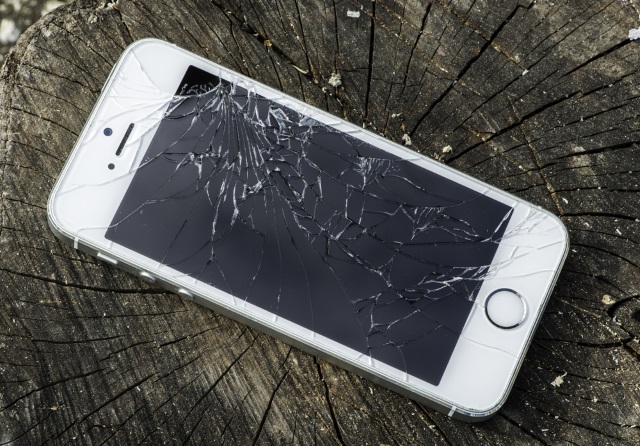
Attention span of a goldfish? Maybe the message is at fault
It's commonly assumed that the internet and electronic communication is making people less able to concentrate and leading to shorter attention spans.
But a new study from presentation platform Prezi finds that in fact attention spans may not be shrinking, rather they are evolving to be more selective.

How technology is changing the way we work
As millennials now become the largest component of the workforce, and as the freelance or 'gig' economy grows, expectations around technology in the workplace are changing.
Cloud communications and collaboration firm Intermedia has produced a report looking at how companies can utilize technology to foster a more collaborative, productive, and accessible workplace, and at the same time help attract and retain top talent.
Two months later, switching to Google from Apple
Doubt disturbed my commitment to give up the Apple Way for the Google lifestyle two months ago. Preparing to pack up my wife's 64GB white iPhone X, I was taken aback by how pretty it was. She kept the thing in a case, which protected from damage but also obscured beauty. For fleeting seconds, I wondered why switch. Product design that generates joy is another benefit—and one transcending any, and every, feature.
But the moment passed, and I boxed up her smartphone along with my 256GB black iPhone X. Google gave great trade-in values, which dispatched the hassle of reselling the devices on Craigslist. Eight weeks later, writing this post on Pixelbook, I don't regret the decision. Confession: The transition isn't quite complete, but we're getting there.

Money, power and ego, the factors that drive people to cybercrime
We reported last week on a report highlighting how many security professionals are turning to a life of cybercrime.
In a follow up research piece, Wendy Zamora at Malwarebytes, has been looking at the psychology, motivations and other underlying factors that drive people to take part in cybercrime.

How automation can address the challenge of an aging workforce [Q&A]
A trend that's already started and will continue for at least the next decade is the loss of skilled workers as older employees start to retire.
The effects are being felt across industries, with Gartner reporting the aging workforce as one of the biggest challenges to the utilities industry. What's more, the skills gap resulting from retiring employees leaving and entry-level employees entering the workforce is causing all industries to look at new solutions to solve the need for experienced and highly skilled workers.

93 percent are worried about online privacy
Compared to a year ago 93 percent of people have the same amount or more concern about their online privacy.
This is according to a survey of of 1,000 people across the US by VPN comparison site TheBestVPN. It finds 51 percent are worried about their information being stolen by hackers, and 26 percent about companies collecting and sharing data.

I declare independence from Apple (and mean it this time)
Six years ago today I penned my personal Declaration of Independence from Apple, nearly a month after pledging to boycott the company's products and services—and I did, only to quietly stop six months later. They say history repeats, eh? On this July 4th, I forsake the fruit-logo company once more. From Apple I return to Google, choosing one digital lifestyle over the other—and not for the first time, as some commenters will be quick to argue.
Past to present: By summer 2012, I viewed various patent assaults by Apple against Samsung and others as competition by litigation, not innovation. Weighing on my decision in 2018 is a newer—and more aggressive—attack against Qualcomm, which headquarters are in San Diego (my city of residence). While a Qualcomm customer, Apple also is a fierce chip competitor that seeks to bolster margins by paying less for patents—and by invalidating or diminishing them, destabilize competition from the Android Army.

70 percent would leave a job if their digital activity was secretly monitored
A new Harris Poll commissioned by insider threat detection company Dtex Systems looks at employee attitudes towards the monitoring of their digital activities.
Carried out in the wake of data collection, monitoring and privacy scandals at Facebook and elsewhere, it shows that 45 percent of Americans believe it is at least sometimes acceptable for employers to monitor employees' digital activities to protect against security threats and data breaches.

Dashlane launches scanning tool to help you protect online accounts
We all sign up to online accounts for various things but over time it can become hard to remember which address you used for each site, what password you used or indeed whether you’ve previously signed up to a site at all.
Password management specialist Dashlane is launching a new feature for mobile users of its password manager called Inbox Security Scan, to give people an insight into the current state of their online accounts.

Consumers don't fully trust digital assistants
Given recent scares about digital assistants recording conversations, it's perhaps not surprising that levels of trust in these devices are not high.
The latest State of Digital Lifestyles survey from Limelight Networks reveals that adoption of digital assistants is highest in the US where 35 percent of consumers currently own one, however, these consumers still have major trust issues with the devices.

How we've come to rely on voice search
Voice search has become increasingly popular in the last few years and figures from Seotribunal show that around half of teens and 41 percent of adults are using it in their day-to-day activities.
That number is still rising too with 1.8 million people expected to be using voice search daily by 2021. Seotribunal has put together an infographic showing how the technology is being used and more.

Average UK home has more than £2,000 worth of broken gadgets
UK households are home to thousands of pounds' worth of broken gadgets, according to new research from technology retailer Laptops Direct.
The survey of more than 1,000 UK adults shows that the average household is currently harboring £2,460 of broken technology and gadgets. Smartphones are the most common items in these technology graveyards with 78 percent holding onto them even though they’re broken.

Employees in technology-enabled workplaces have better job satisfaction
People are happier in their work and more positive about the future if they're working in a digital environment, according to new research.
The report from cloud networking company HPE Aruba also shows workers are positive about using more automated technology, challenging the received wisdom that we’re all scared about machines taking our jobs.

Invasion of the dog-poop phones
A few days ago, BetaNews Managing Editor Wayne Williams emailed asking if I could contribute content after being silent for ages, especially as the site's 20th anniversary approaches. He doesn't fathom the potential terror that request will unleash.
I have written a total of two tech stories for BN in 2018—surely to the delight of my many commenter critics. Reason: Joe Wilcox is on a self-imposed writing hiatus as he looks distrustfully at the many so-called innovations that he championed during a 25-year technology reporting career. He is disgusted to see how we have become commodities stored in the pantries kept by Facebook, Google, Microsoft, Twitter, and most every other advert-licking, AI-snorting, location-tracking, tech purveyor of promises looking to consume us for profit. Burp.

UK sets out five principles for the ethical use of AI
The UK can be a world leader in the development of AI says a report released today from the House of Lords Select Committee on Artificial Intelligence.
The report sets out five principles for the use of AI which have some echoes of Asimov's laws of robotics. The principles are:
